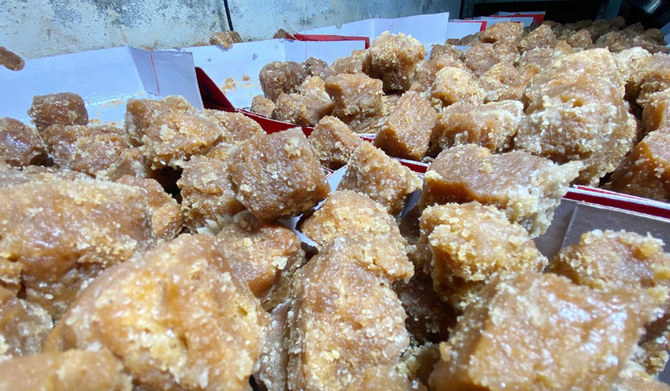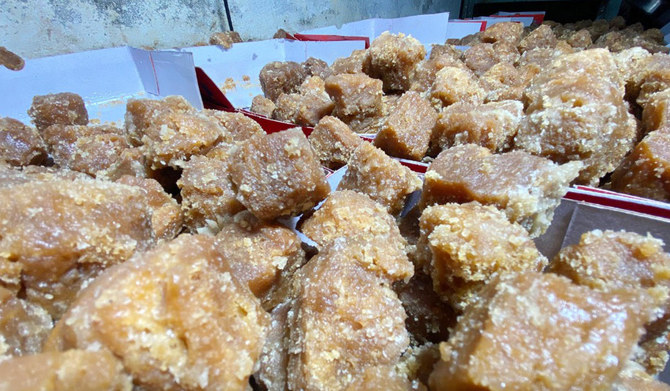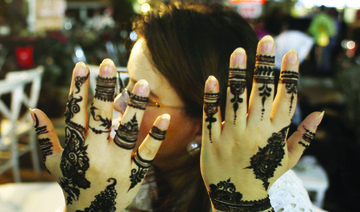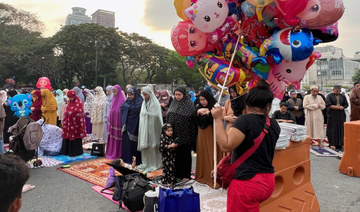PESHAWAR: Salahuddin Khan last week traveled more than 160 km to the city of Charsadda in the Khyber Pakhtunkhwa province of Pakistan just so he could buy some Rajjar mithai, one of the most popular Eid treats in the region.
The crisp, golden brown snack made of jaggery (a type of cane sugar), refined wheat flour and baking soda takes its name from the Rajjar Bazaar, which lies just north of Charsadda. Most of the shops there used to be owned by Hindus before millions of them migrated to East Punjab after the Partition of India in 1947.
Today, thousands of customers visit the market in the run-up to Eid to buy the traditional sweets for their celebrations or to give as gifts to friends and relatives. Such is its popularity that some people buy it to sell on.
“I have come from Timergara for this mithai,” Khan told Arab News outside the Chacha Israr-ud-Din Mithai shop, which was established in 1930 and is affectionately known as the “asli,” or original sweet shop in the market.
“We come every year. We give them an order of around 300-400 kg of mithai two to three days before we are coming to pick it up.

A worker is busy filling boxes with Rajjar Methai in Charsadda, Pakistan on April 15, 2023. (AN photo)
“We take it to sell onward. We also take orders from friends,” he added. “We take it because it doesn’t go bad for 10 to 15 days.”
A special baking process gives the mithai its unique flavor and longevity.
The first step involves kneading a mixture of refined wheat flour, baking soda, ghee and water. The dough, divided into small, irregular shapes that resemble jaggery, is left to dry and then baked. The final product is soaked in sugar syrup.
“We add baking soda and water while preparing the dough, and no chemicals are added,” said Sharaf-ud-Din, who owns Asli.
“The more ghee that we add in the kneading process, the more ghee is absorbed in the backing process. Due to this, our mithai is soft and cooked from inside and outside.”
Din said he learned the recipe from a Hindu confectioner who moved to India after the Partition.
His father, Israr-ud-Din, opened the shop in 1930 and it remains family-run.
“In 1974, I took the business into my own hands,” Din said as he supervised his staff. “You see all these workers, they all are my nephews.”
Din said he began taking orders for his mithai 10 days before Eid to ensure he could meet the demand.
His basic sweets cost 450 Pakistani rupees ($1.60) per kilogram, with the most expensive, made with extra ghee, priced at Rs800 a kilogram.
Din sells most of his mithai to people across Pakistan, though he also has buyers in Saudi Arabia, which has a large Pakistani expat community.
“In Pakistan, with God’s blessing, it is eaten across Khyber Pakhtunkhwa,” he said. “It is supplied to Punjab and Balochistan too.”















